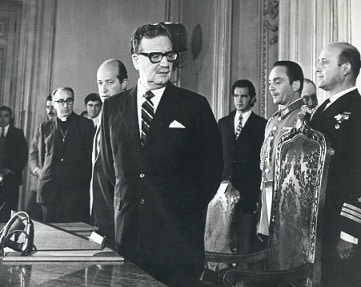 Nationalization is the act and consequence of nationalizing . This verb (nationalize), meanwhile, has several meanings: the first one mentioned in the dictionary of the Royal Spanish Academy ( RAE ) refers to naturalizing, in one nation, individuals or elements of another .
Nationalization is the act and consequence of nationalizing . This verb (nationalize), meanwhile, has several meanings: the first one mentioned in the dictionary of the Royal Spanish Academy ( RAE ) refers to naturalizing, in one nation, individuals or elements of another .
For example: “The authorities of the football association achieved the nationalization of three players who will join the local team,” “Thirty years have passed since my nationalization; “I feel more Spanish than Argentine,” “The actor assured that, despite working in Brazil for years, he never thought about nationalization.”
With nationalization, a citizen of a certain State obtains the nationality of another State . Generally this is allowed when the subject has a link to the second country through prolonged residence , direct ancestry or through marriage .
There are States that allow nationalization without renouncing previous nationality: in these cases, the individual acquires dual nationality . However, there are States that require giving up the first nationality as a requirement .
The nationalization process varies in each case, since it depends on various factors specific to the relationship between the two countries. This has an impact on the severity and rigidity of the demands , some of which have been mentioned in a previous paragraph. If the requirement is to have remained for a certain period of time in the country of which you wish to acquire nationality, this is usually added to the fact that the interested party has not traveled abroad during that entire time; In other words, permanence must be absolute and continuous.
On the other hand, we have the requirements related to ancestry, which are the first to evaluate if the interested party has not yet traveled to the country of interest. Some countries accept more than one generation back, while others require the link to be direct. But in the middle of these two extremes there are many possibilities, many ways to limit nationalization to prevent excessive migration .
These types of measures, which often give rise to an almost millimeter level of requirements that very few people can meet, including specific ranges of years of birth or naturalization of the ancestor, give rise to heated debates by those who feel the need to travel abroad to seek new study or work possibilities and encounter obstacles that prevent them from accessing documents .
 The long lines in the various offices, the endless procedures to obtain the ancestor's documentation and renew your own (it is common that the documents cannot exceed three or six months old ), and the meetings at the consulate are other obstacles , which in addition to being difficult to overcome can be accompanied by unpleasant treatment by employees to wear down those interested.
The long lines in the various offices, the endless procedures to obtain the ancestor's documentation and renew your own (it is common that the documents cannot exceed three or six months old ), and the meetings at the consulate are other obstacles , which in addition to being difficult to overcome can be accompanied by unpleasant treatment by employees to wear down those interested.
Nationalization or nationalization , on the other hand, is the process carried out by a government when it orders that certain services or industries operated by individuals begin to operate under the orbit of the State . Similarly, nationalization can consist of making those assets that were in the hands of foreigners remain in the hands of nationals .
Chilean President Salvador Allende , to mention a historical fact, promoted the nationalization of copper in 1971 . The president, in this way, deepened a measure that Eduardo Frei Montalva had promoted in 1966 .
Frei Montalva is accused of being responsible for the Chileanization of copper : under his management, the Chilean State acquired shares of large foreign mining companies that operated in the national territory. Then Allende carried out the nationalization and nationalization of the so-called large-scale copper mining .
